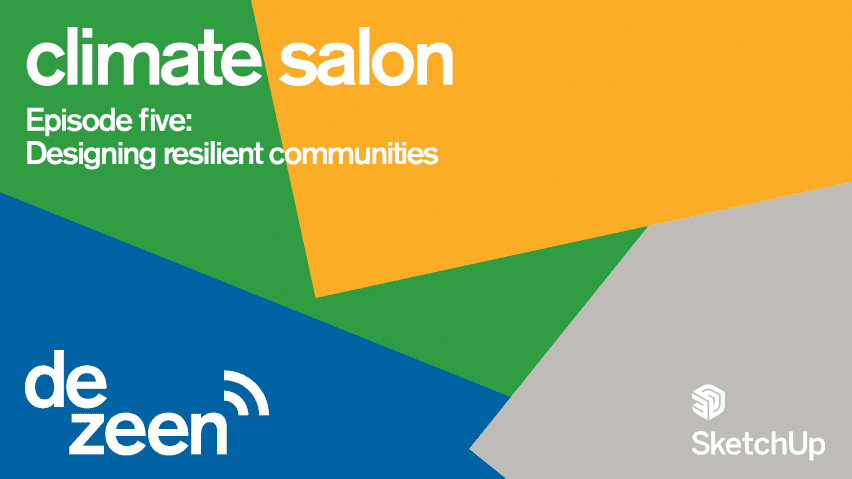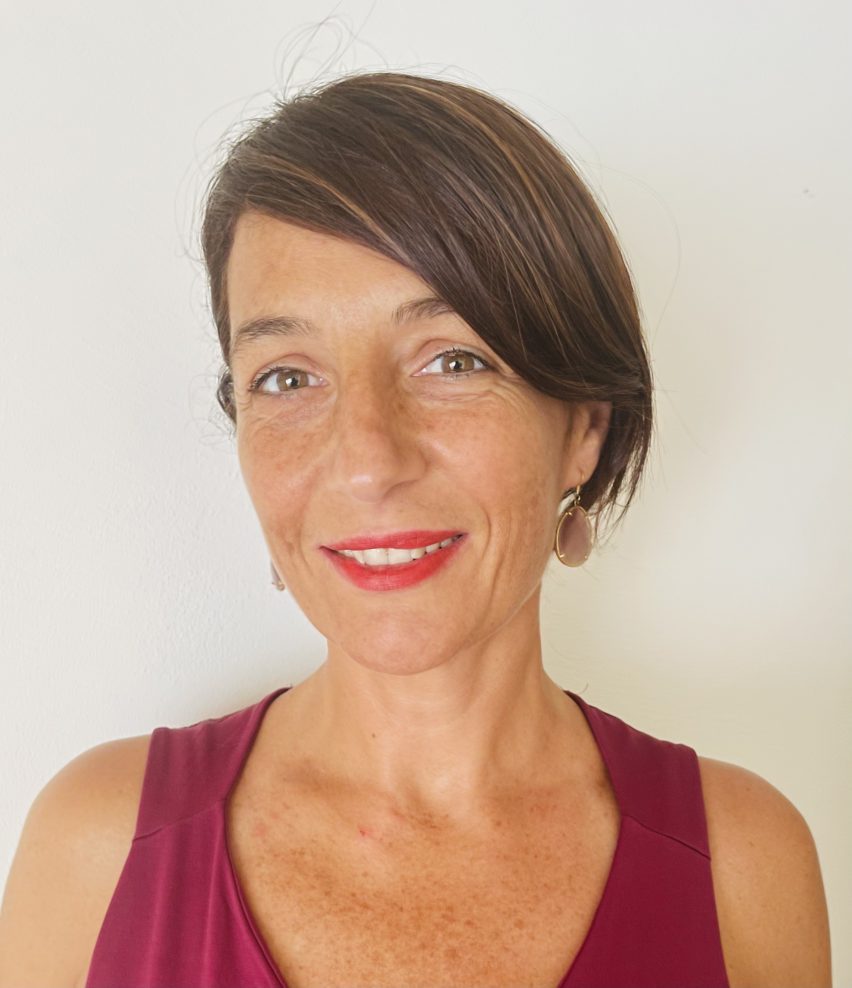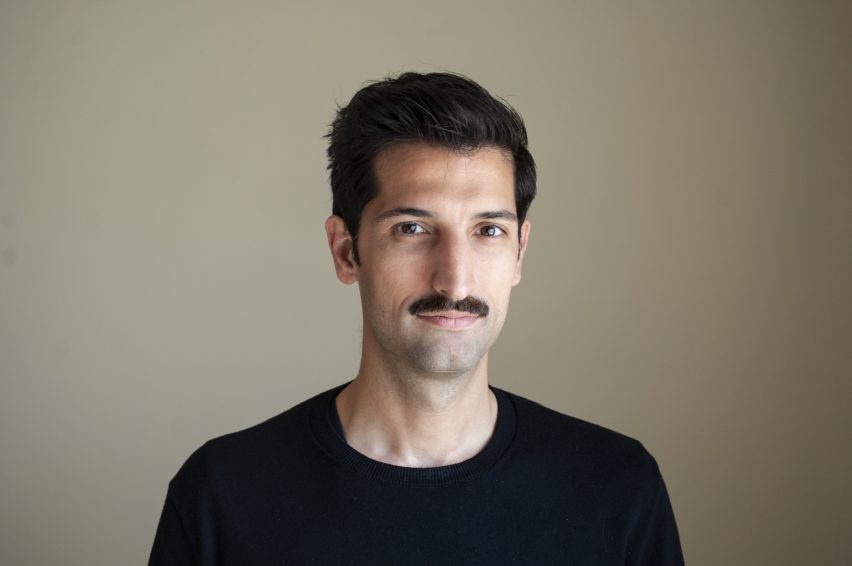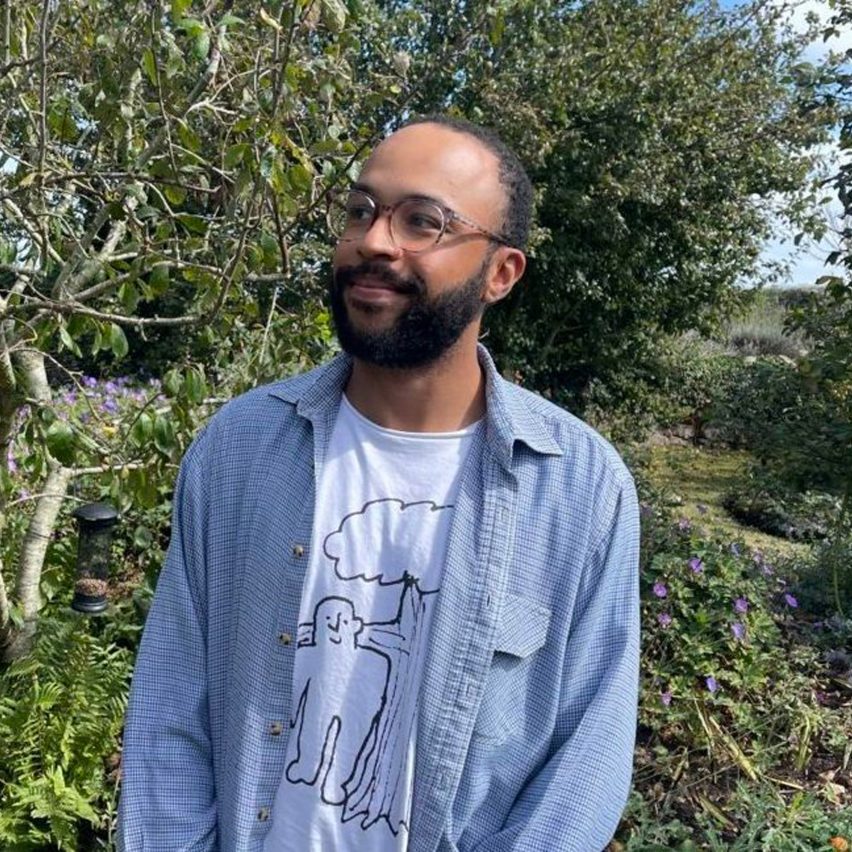
Resilience means more than "capacity to respond to disaster" says Sara Candiracci in Climate Salon podcast
In the fifth episode of our Climate Salon podcast series with SketchUp, architects discuss the importance of designing with community resilience and empowerment in mind.
"Designing resilient communities", the fifth episode of the podcast, explores how urban design can positively benefit and strengthen social groups in the context of climate change.
Listen to the episode below or subscribe on Apple Podcasts, Spotify and Google Podcasts to catch the whole series.
Hosted by Dezeen's design and environment reporter Jennifer Hahn, the panel featured software brand Trimble SketchUp's product manager Aris Komninos, building consultancy Arup's associate director for cities and global leader for social value and equity Sara Candiracci and charity The Glass House's design champion Jake Stephenson-Bartley.
Resilient design is often thought of in terms of response to immediate crises, such as natural disasters. However, the panel emphasised the importance of laying the preliminary groundwork for this resilience through strong and integrated social structures.
"What is important is to really promote the many systems that contribute to a resilient community, which is not only the capacity to respond to disaster, but the overall social systems and also the sense of togetherness and connection, which is essential in a time of need," said Candiracci.

"There's not one singular definition [of resilience]," added Stephenson-Bartley.
"Resilience itself is rooted in wellbeing, imagination and foresight. So supporting the wellbeing of individuals and communities, so that they can participate collectively or as individuals in placemaking," he said.
"It's a way of showing communities that they're important, and that they have a role to play in decision-making and planning," added Candiracci.
The panel also discussed the challenges that architects and individuals face when trying to implement community-focused work.
"There is an effort to create more scale interventions which benefit communities. For instance [Barcelona] is doing an amazing job in terms of adopting desegregated data to inform transportation," said Candiracci.
"But I think there is a need to do this at scale, so it becomes not just something nice to do, but something that becomes part of a new way of designing," she said.

"Often the larger kind of socio-economic and political structures become barriers towards time and resource being given to supporting communities being resilient," explained Stephenson-Bartley.
"Even within the same city, between two different urban blocks that are next to each other, you will have those kinds of inequalities," added Komninos.
"If you really look at the granular level of the data, it is actually also very telling how critical it is to adopt a more on-the-ground approach when we design, and not a top-down approach," he continued.
The panel agreed that changing practices regarding resilience at scale should involve introducing education on the topic at a much earlier stage than is currently the norm.
"The key thing to do is to talk to users every week", said Komninos. "If you don't do that you're completely cut off. I realised, as a designer, I was not doing that at all. To me, this is a mindset shift that needs to happen in design".
"This idea of building resilient communities and looking at cities as a whole emerges in different places," he continued. "But again, this is taught at a very late level to a very small cohort of people. This needs to be something that is taught at a much earlier level."
"I think it's important to think about how we can embed these topics, these conversations, in alternative routes beyond university," added Stephenson-Bartley, and proposed apprenticeships as a platform for young people to start thinking about resilience.

The conversation is the fifth episode of Dezeen and SketchUp's Climate Salon, a podcast series exploring the role that architects and designers can play in tackling climate change.
Across six episodes, Dezeen is speaking to architects, designers and engineers to explore how to better collaborate across their respective disciplines to create a more cohesive response to climate change.
Produced by Dezeen's in-house creative team, Climate Salon episodes will be released over the coming months, along with opinion pieces by SketchUp relating to the topics featured in the series.
The fifth episode is now available to download. Subscribe now on Spotify, Apple Podcasts or Google Podcasts to make sure you don't miss an episode.
SketchUp is a piece of 3D design software used to model architectural and interior design projects, product designs, civil and mechanical engineering and more. It is owned by construction technology company Trimble.
Partnership content
The Climate Salon podcast is produced by Dezeen in partnership with SketchUp. Find out more about Dezeen partnership content here.
